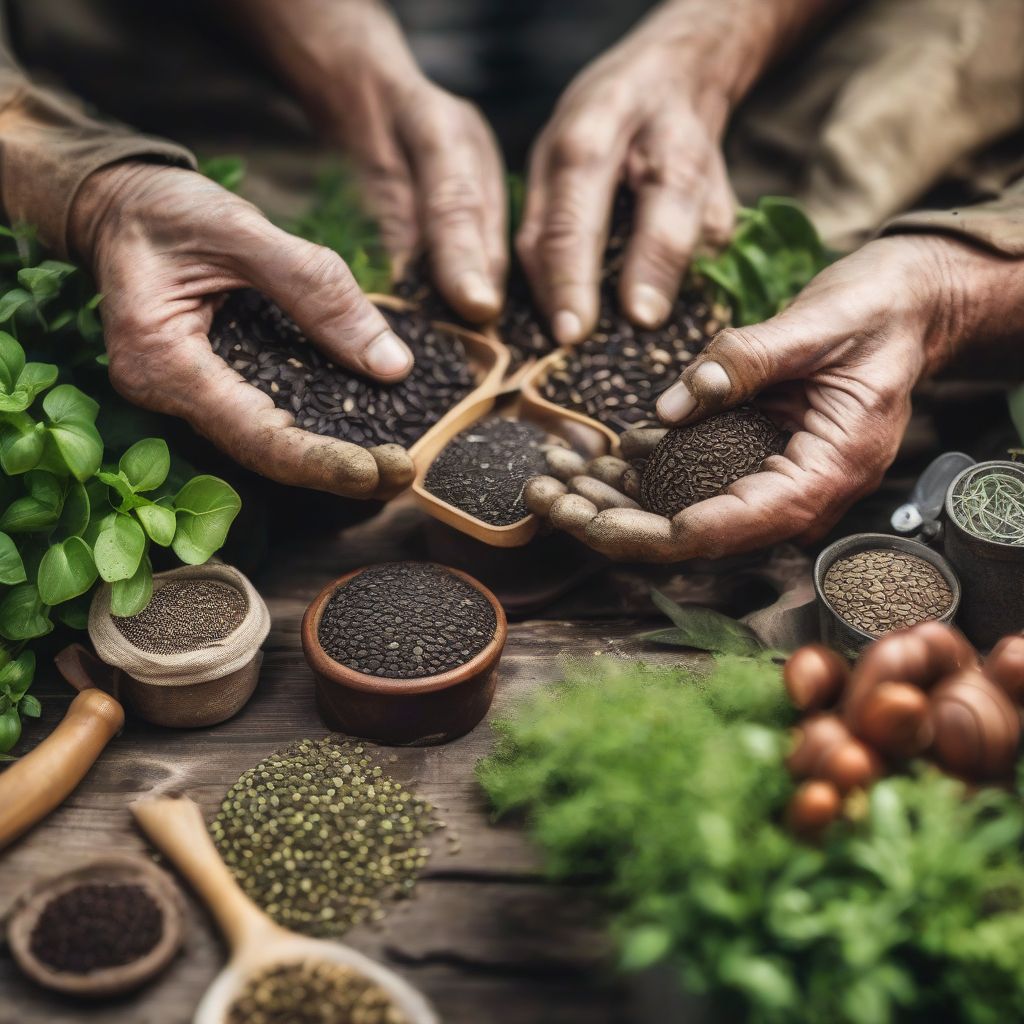Have you ever dreamt of biting into a juicy tomato, warm from the sun, knowing you nurtured it from a tiny seed? Growing your own organic food can be incredibly rewarding, and it all starts with choosing the right seeds. For beginners, navigating the world of organic seeds can feel overwhelming. Fear not! This guide will empower you to confidently select the perfect organic seeds for your first garden.
Why Choose Organic Seeds?
Choosing organic seeds is a commitment to sustainable gardening practices and healthier food. Organic seeds are produced without synthetic pesticides, herbicides, or fertilizers, contributing to a healthier ecosystem. Plus, plants grown from organic seeds are often more resilient and flavorful. As a certified nutritionist and meal prep coach, I can attest to the nutritional benefits of organically grown produce. Studies have shown that organic fruits and vegetables can have higher levels of certain nutrients.
Understanding Seed Types
Open-Pollinated Seeds
Open-pollinated seeds come from plants that are pollinated naturally by insects, wind, or birds. These seeds produce plants that are true to type, meaning the offspring will resemble the parent plant. Saving seeds from open-pollinated varieties is a great way to ensure a continuous supply of your favorite vegetables.
Heirloom Seeds
Heirloom seeds are a special type of open-pollinated seeds that have been passed down through generations, often carrying unique flavors and characteristics. Think of them as the antique treasures of the seed world. These varieties offer a taste of history and preserve biodiversity.
Hybrid Seeds
Hybrid seeds are created by cross-pollinating two different plant varieties to produce offspring with desirable traits like disease resistance or higher yields. While hybrids often offer advantages in the short term, they typically don’t produce seeds that are true to type, making seed saving less predictable.
Factors to Consider When Choosing Organic Seeds
Your Climate
Consider your local climate and growing season. Some plants thrive in warm climates, while others prefer cooler temperatures. Choose seeds that are well-suited to your specific region for optimal growth. You can find information on your local hardiness zone to guide your seed selection.
Your Garden Space
Whether you have a sprawling backyard or a small balcony, choose seeds that are appropriate for the space you have available. Compact varieties are ideal for smaller gardens or containers. Check the seed packet for information on plant size and spacing requirements.
Your Experience Level
As a beginner, it’s a good idea to start with easy-to-grow varieties like lettuce, radishes, or beans. These vegetables are relatively low-maintenance and offer quick rewards, boosting your confidence as a gardener. As you gain experience, you can experiment with more challenging crops.
Your Taste Preferences
Growing your own food allows you to cultivate varieties that you love to eat. Explore different heirloom varieties to discover unique flavors and textures. Don’t be afraid to try something new!
Where to Buy Organic Seeds
Reputable seed companies specialize in organic and heirloom varieties. Look for certifications like USDA Organic to ensure the seeds meet organic standards. Local nurseries and farmers’ markets can also be great sources for locally adapted organic seeds.
Tips for Success
Starting Seeds Indoors
Starting seeds indoors gives your plants a head start, especially in cooler climates. Use seed-starting trays and a quality seed-starting mix. Provide adequate light and moisture to encourage healthy growth.
Direct Sowing
Some seeds, like beans and squash, are best sown directly into the garden. Follow the instructions on the seed packet for proper planting depth and spacing.
Seed Saving
Saving seeds from open-pollinated and heirloom varieties is a sustainable and cost-effective way to replenish your seed supply. Allow selected plants to go to seed, then collect and dry the seeds for storage.
 Choosing Organic Seeds
Choosing Organic Seeds
Common Questions About Choosing Organic Seeds
Are organic seeds more expensive?
Organic seeds can sometimes be slightly more expensive than conventional seeds due to the extra care and attention required in their production. However, the benefits of supporting sustainable agriculture and enjoying healthier food often outweigh the small price difference.
Can I save seeds from hybrid plants?
While you can save seeds from hybrid plants, the offspring may not have the same desirable traits as the parent plant. It’s generally recommended to save seeds from open-pollinated or heirloom varieties for predictable results.
Conclusion
Choosing the best organic seeds for your first garden involves considering your climate, space, experience level, and taste preferences. By understanding the different types of seeds available and following these tips, you’ll be well on your way to enjoying the bounty of your own organically grown harvest. Remember, starting small and learning as you go is key. Don’t be afraid to experiment and enjoy the journey! What are your favorite organic seeds to grow? Share your thoughts and experiences in the comments below! And if you’re ready to take your organic gardening to the next level, check out our guides on how to start your first organic garden at home and how to use cover crops to enrich soil naturally. For seasonal inspiration, explore our guide on the top vegetables to grow each season organically.



